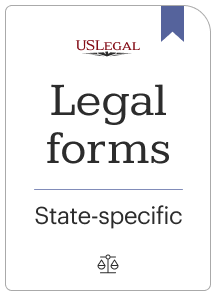

An addendum is a thing to be added; an addition. For example, it may be used to add supplemental terms or conditions to a contract or make corrections or supply omissions to a document. An addendum is often used to supply additional terms to standardized contracts, such as leases. Addendum is singular; the plural form is addenda.
Real propertysales agreements often have addenda (plural of addendum) as the buyer and seller negotiatefine points (how payments will be made, what appliances will be included, date of transfer oftitle, the terms of financing by the seller and the like). Although often they are not, addendashould be signed separately and attached to the original agreement so that there will be noconfusion as to what is included or intended.
The Oregon Addendum to Real Estate Purchase and Sale Agreement is a legal document that is used to modify or add specific terms and conditions to a standard Real Estate Purchase and Sale Agreement in the state of Oregon. The purpose of the addendum is to address any additional requirements, obligations, or contingencies that are specific to Oregon laws and regulations. It ensures that the transaction is in compliance with the state's real estate regulations, providing protection to both buyers and sellers. There are different types of Oregon Addendum to Real Estate Purchase and Sale Agreements that can be used depending on the circumstances of the transaction. Some common types include: 1. Financing Addendum: This addendum is used when the purchase of the property is contingent upon the buyer obtaining financing. It may include details such as the type of loan, interest rate, loan term, and other financial conditions. 2. Inspection Addendum: This addendum allows the buyer to perform inspections on the property before completing the purchase. It specifies the scope of the inspections, any repair requests, and the timeline for completing the inspections. 3. Appraisal Addendum: If the buyer requires the property to undergo an appraisal to determine its market value, this addendum is used. It sets out the terms and conditions related to the appraisal process, including timelines and potential adjustments to the purchase price based on the appraisal results. 4. Seller's Property Disclosure Addendum: This addendum requires the seller to disclose any known defects or issues with the property. It ensures that the buyer is aware of any potential problems before finalizing the purchase. 5. Escrow and Title Addendum: This addendum outlines the specific terms and conditions related to the escrow and title services involved in the transaction. It covers details such as the selection of an escrow agent, title insurance, and any special provisions regarding title clearance. It is important to carefully review and understand the specific addendum relevant to the transaction, as each one addresses different aspects of the purchase and sale agreement. Working with a qualified real estate agent or attorney is advisable to ensure that all relevant addendums are properly completed and submitted.
The Oregon Addendum to Real Estate Purchase and Sale Agreement is a legal document that is used to modify or add specific terms and conditions to a standard Real Estate Purchase and Sale Agreement in the state of Oregon. The purpose of the addendum is to address any additional requirements, obligations, or contingencies that are specific to Oregon laws and regulations. It ensures that the transaction is in compliance with the state's real estate regulations, providing protection to both buyers and sellers. There are different types of Oregon Addendum to Real Estate Purchase and Sale Agreements that can be used depending on the circumstances of the transaction. Some common types include: 1. Financing Addendum: This addendum is used when the purchase of the property is contingent upon the buyer obtaining financing. It may include details such as the type of loan, interest rate, loan term, and other financial conditions. 2. Inspection Addendum: This addendum allows the buyer to perform inspections on the property before completing the purchase. It specifies the scope of the inspections, any repair requests, and the timeline for completing the inspections. 3. Appraisal Addendum: If the buyer requires the property to undergo an appraisal to determine its market value, this addendum is used. It sets out the terms and conditions related to the appraisal process, including timelines and potential adjustments to the purchase price based on the appraisal results. 4. Seller's Property Disclosure Addendum: This addendum requires the seller to disclose any known defects or issues with the property. It ensures that the buyer is aware of any potential problems before finalizing the purchase. 5. Escrow and Title Addendum: This addendum outlines the specific terms and conditions related to the escrow and title services involved in the transaction. It covers details such as the selection of an escrow agent, title insurance, and any special provisions regarding title clearance. It is important to carefully review and understand the specific addendum relevant to the transaction, as each one addresses different aspects of the purchase and sale agreement. Working with a qualified real estate agent or attorney is advisable to ensure that all relevant addendums are properly completed and submitted.